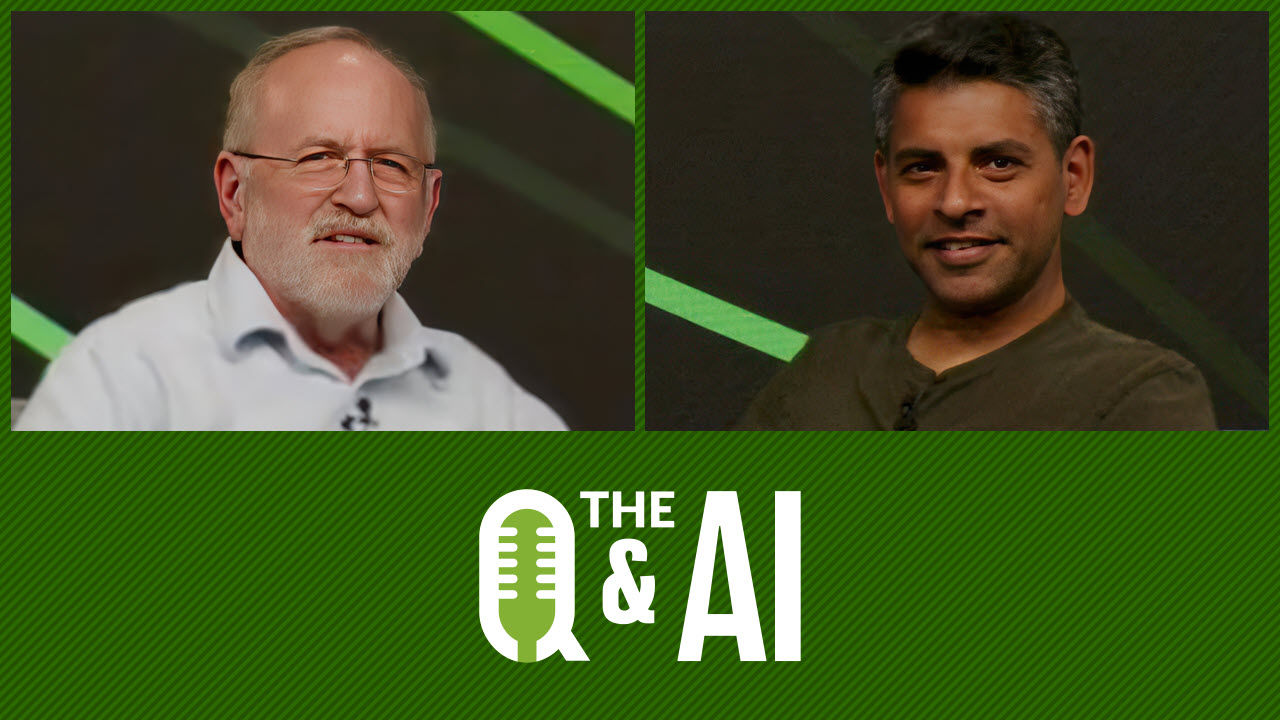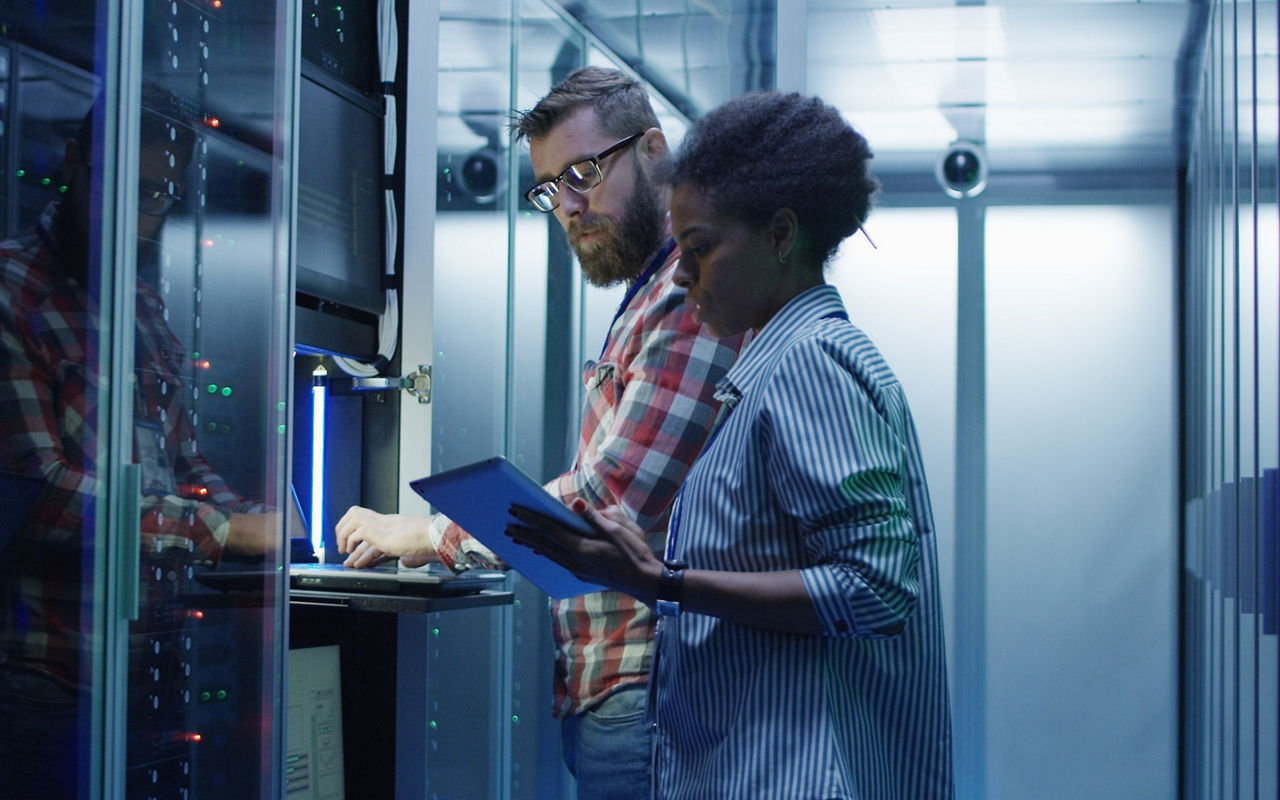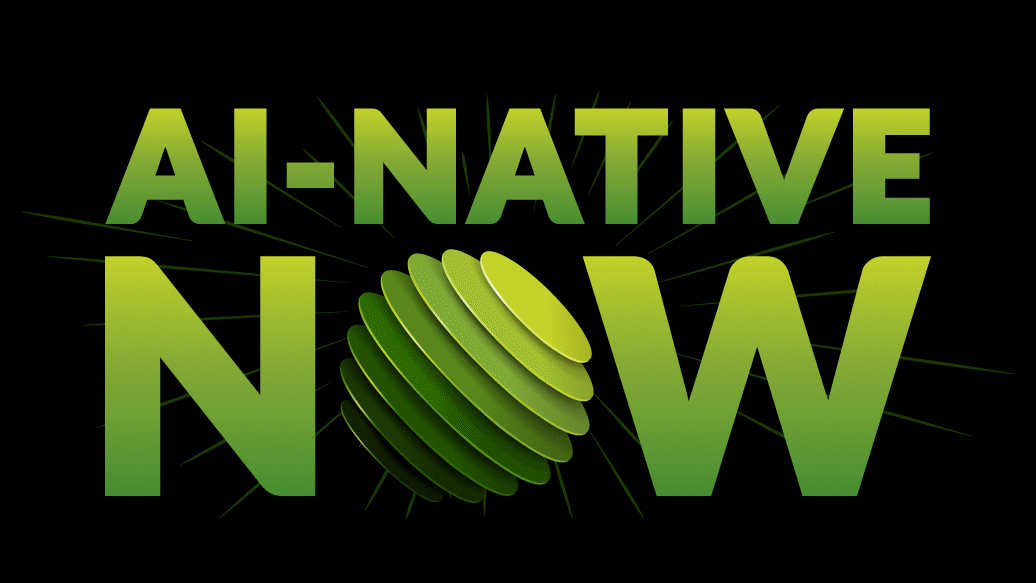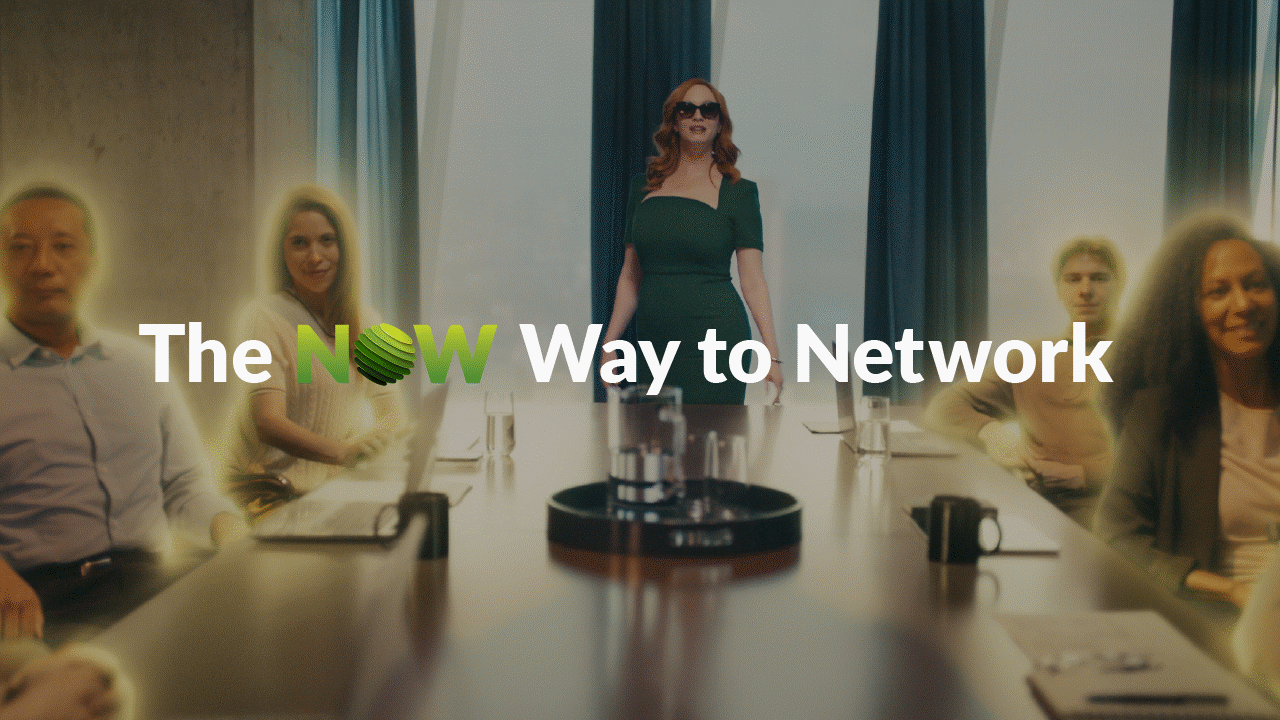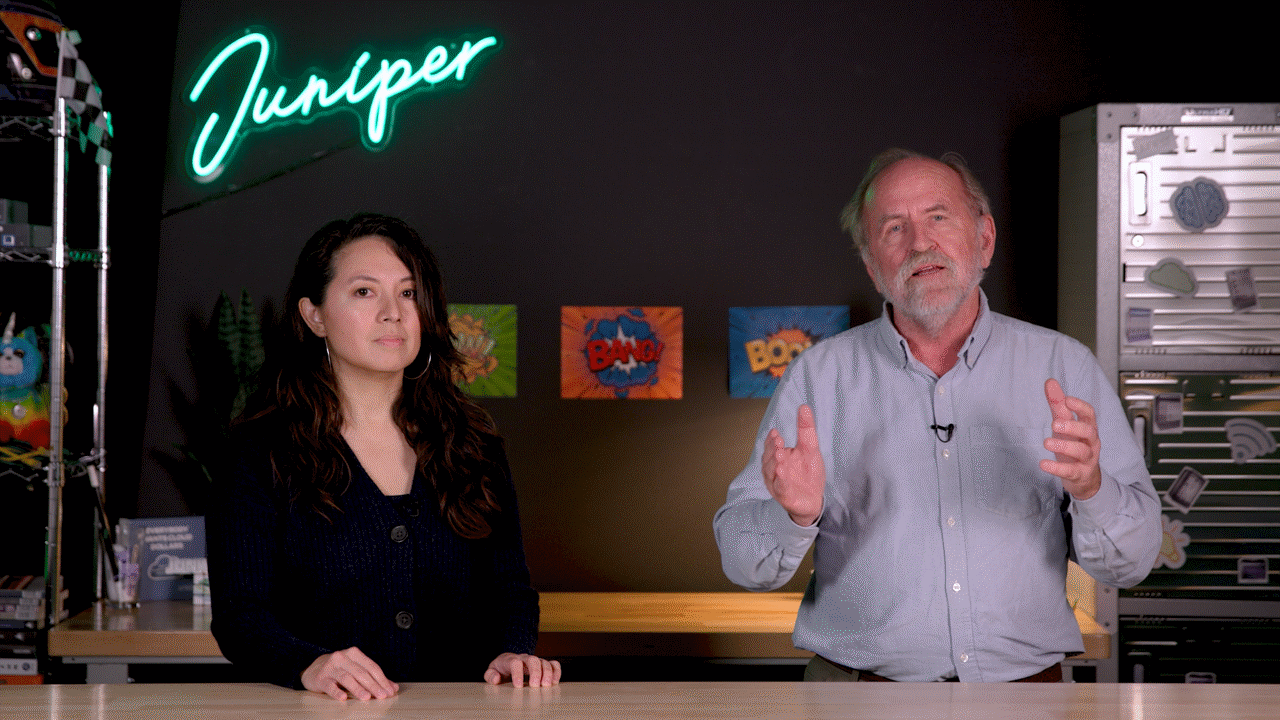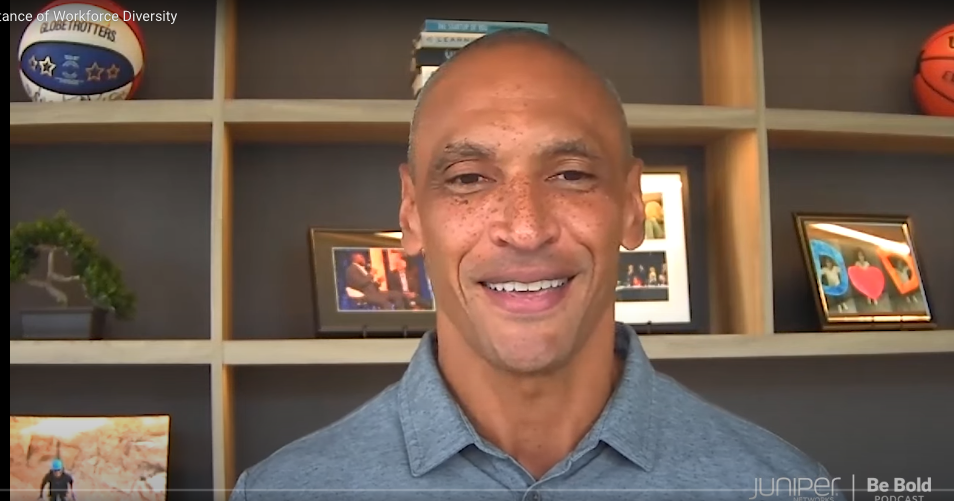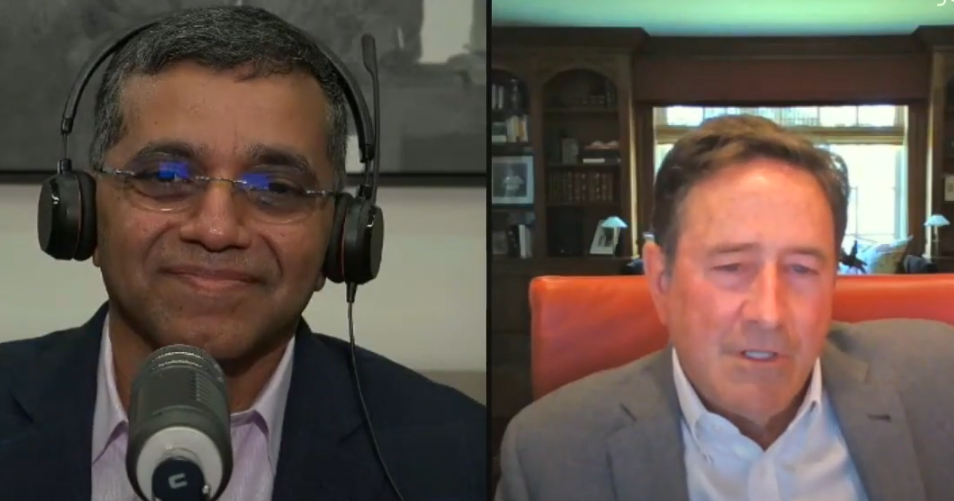Be Bold Podcast - Episode 5: Lead With Your Strengths


Looking to take your career in tech to the next level?
Get inspiration from technology leader Anne DelSanto, who played to her strengths and overcame challenges to build a successful career at IBM, Oracle, Salesforce, and as a board member of Juniper Networks and many other leading technology companies—all while prioritizing family.
You’ll learn
How to leverage your strengths while navigating your career journey
Advice on finding growth opportunities in today’s job market
Who is this for?
Host

Guest speakers

Experience More
Transcript
0:00 foreign
0:03 you know I often look back at that time
0:05 and say it was probably the most
0:06 difficult decision of my entire career
0:09 to step away from a career I had just
0:12 launched the as400 product line I was
0:15 one of the top countries uh experts in
0:20 the architecture of the as400 I I was
0:23 the person who launched it in Boston I
0:26 was young this was heady stuff and so to
0:29 to make a decision at such a height to
0:32 walk away was very difficult
0:35 [Music]
0:44 hello everyone and welcome to another
0:47 episode of be bold
0:49 today I have the pleasure of speaking
0:52 with Ann Del Santo an inspirational
0:54 leader who has trailblazed throughout
0:56 her career while also prioritizing
0:59 family
1:01 today we talk about her journey hurdles
1:04 she faced along the way the mentors that
1:07 inspired her
1:08 and the advice she has for young people
1:10 building their own carriers
1:13 welcome to the podcast Anne it's a
1:15 pleasure to have you today
1:17 and full disclosure for the audience you
1:19 know and Del Santo who joins us today
1:22 is a member of the board of directors at
1:24 Juniper Networks she's an inspirational
1:26 leader in the tech world
1:29 but she started off in New York from
1:32 your accent I can tell you're from New
1:33 York but tell us a little bit about your
1:36 beginnings and how did you get
1:38 interested in Tech in the first place
1:41 well thank you manage
1:43 a wonderful
1:48 meetings and so it is it's great to join
1:52 you for this uh yes you definitely
1:55 picked up my new York City accent I I
1:58 grew up in Queens New York and I would
2:00 say uh the beginning of my love of tech
2:04 really began
2:06 um with an algebra class I fell in love
2:09 with algebra and geometry and I just
2:13 could not believe
2:14 um how rewarding it was to solve
2:17 problems to solve for an equation many
2:20 listening probably think that's
2:22 unbelievable but it's true and that was
2:26 really the beginning of of my love of
2:29 technology and and really solving
2:31 problems through the use of Technology
2:35 that's great algebra hmm
2:38 so from what I know I think you did your
2:41 schooling in St John's and you started
2:44 off in math with a minor in computer
2:48 science how did you get like really into
2:51 it like algebra was a great start but
2:53 math and computer science how did you
2:54 get into it
2:56 yeah I
2:58 I'd say John's because it was I paid my
3:01 way through college and so that really
3:03 you know helped me decide where I was
3:07 going to end up going to college
3:09 and my love of math through high school
3:12 made me realize that math helps you to
3:15 think through things it helps you to
3:18 prove your theories and and come up with
3:21 a solution and I thought it was the best
3:23 preparation at the time I was actually
3:25 thinking I might want to be a lawyer and
3:27 so I said what what could I major in
3:30 undergraduate that's going to prepare me
3:32 for the rigors of putting together a
3:34 case and I could think of nothing better
3:36 than uh you know proving a calculus
3:39 theorem and advanced calculus in physics
3:42 and so I did that it was a concentration
3:45 you had two choices in math you could go
3:47 applied or Theory and at the time
3:50 Applied Mathematics was computer science
3:52 and that was really my first
3:54 Taste of programming developing and
3:58 again solving Solutions with technology
4:00 and just the rewarding feeling when you
4:03 see that output come out based on your
4:06 program so it just it kept in
4:09 interesting me and and and getting me
4:12 excited about what laid ahead
4:14 beautiful Theory and from Theory you
4:17 move to applied math
4:18 and
4:20 if I look at math as a whole then going
4:22 into computer science these are not
4:24 areas which was typically
4:26 female dominated areas in the past it is
4:29 predominantly male dominated areas so
4:31 when you can't do this did you have any
4:34 early mentors how was it getting into
4:35 this field which is predominantly male
4:37 dominated at that time and did you have
4:39 any early mentors or anybody to help you
4:41 through this journey
4:43 yeah I would say uh you know looking
4:46 back at the time I just loved math so
4:48 much I never really actually lifted my
4:50 head up and looked around to see there
4:52 weren't very many of me in the room but
4:55 I did have two great girlfriends and we
4:57 were the only three that were in that
4:58 graduating class of math but um I also
5:02 had an older sister uh Regina and she
5:05 ended up majoring in math we both had
5:07 this love she went into Actuarial
5:09 sciences and more on the business side
5:11 but I I always had somebody that I could
5:15 share this love with and that it was
5:17 reflected back to me that that this was
5:20 fun and interesting
5:23 um and I could have a social life as
5:24 well so so that so that really did
5:28 continue to encourage me
5:30 you had a great role model your elder
5:32 sister that's awesome
5:34 after school you know getting before
5:37 getting into a profession I think you
5:39 had told me earlier that you know you
5:41 had a brief snippet where you actually
5:42 work for your dad you know your dad in
5:45 the accounting profession and you did
5:46 work for your dad and there were some
5:47 early experiences which came out of
5:49 working for your dad and maybe some
5:51 areas you definitely want to be in and
5:53 some areas you definitely do want to be
5:54 in right there was some formative period
5:56 for you do you want to share a little
5:57 bit about that
5:59 sure like you said my dad was in
6:01 accounting he he did various roles on
6:04 Wall Street and one summer I I worked in
6:07 an accounting department in a brokerage
6:09 firm
6:10 for me with my dad being an accountant
6:12 and me loving math I just thought
6:15 everybody becomes an accountant you know
6:17 when you're in school you have no idea
6:19 but after working that summer in what is
6:23 the back office I realized this is not
6:26 something I want to do the rest of my
6:28 life and when I was developing and
6:32 programming in college I likened it to a
6:35 back office job and so while I wasn't
6:37 quite sure what I was going to do with
6:39 this computer science love
6:42 I knew that sitting in front of a screen
6:45 and developing all day
6:47 um I I just couldn't see myself doing
6:50 that I didn't know what else a career
6:52 would hold for me but because of this
6:55 accounting experience I knew that
6:58 development might not be in the cards
7:00 for me
7:01 so accounting had an influence no
7:03 software development I don't want to be
7:05 sitting in front of a computer so then
7:07 you ended up in IBM so how did that IBM
7:11 journey start you know how did you
7:12 progress in the IBM Journey
7:15 sure I I had the opportunity to be an
7:18 intern for IBM in my final summer at
7:20 college and this is happenstance and
7:23 sometimes this happens in careers you
7:25 know just these lucky happenstance I was
7:29 um assigned to a systems engineer of
7:31 course I never knew what this role was I
7:33 didn't even know it existed
7:35 but I worked with a systems engineer all
7:37 summer we visited customers throughout
7:40 Manhattan I ended up by the end of the
7:43 summer giving presentations at the
7:45 customer Visitor Center on capacity
7:48 planning and how do you manage memory
7:51 and swapping and disk capacity on your
7:53 mainframes
7:55 and this combination of technology to
7:58 solve business problems working with
8:01 customers understanding their businesses
8:04 and helping them see how technology is
8:07 the solver of these problems
8:10 I almost could not believe that people
8:12 would pay you to do a job like this and
8:15 I really did fall into it as an intern
8:17 so I began working for IBM and you know
8:21 as they say the rest is history this
8:24 pre-sales systems engineering solution
8:27 engineering really became the model for
8:30 for what most of my career was made up
8:32 of
8:33 so what I hear from you is that you
8:35 loved engaging with you know customers
8:37 solving problems you know different sort
8:40 of Applied math in terms of actually
8:42 solving problems but not sitting in
8:44 front of the computer right which is
8:45 what you hated the most
8:47 so I think you spent a few years at IBM
8:52 and then you took a break
8:55 to spend time with the family to start a
8:57 family you had kids and it was a big
9:01 Hiatus if I'm not mistaken do you want
9:04 to tell us something something about
9:06 that decision as well as coming back to
9:09 work later
9:10 sure
9:12 um you know I often look back at that
9:14 time and say it was probably the most
9:15 difficult decision of my entire career
9:18 to step away from a career I had just
9:22 launched the as400 product line I was
9:25 one of the top countries uh
9:28 experts in the architecture of the as400
9:32 I I was the person who launched it in
9:34 Boston I was young this was heady stuff
9:37 and so to to make a decision at such a
9:40 height to walk away was very difficult
9:43 but I I knew that it was right for me
9:47 and our family for me to do that and so
9:50 I did stay home uh eight years to raise
9:53 my two children and then did come back
9:57 into the workforce I hadn't met anybody
9:59 who had done that at that time and I
10:02 came back as a Solutions engineer for
10:04 Oracle which you know isn't isn't known
10:08 for its uh touchy feely you know soft
10:13 culture
10:15 um but but I was grateful for that
10:17 opportunity and and I I picked up my
10:20 career at Oracle
10:22 I mean there's a lot of things you kind
10:24 of you know to unpack right there from
10:27 what you said you were on a meteoric
10:29 rise at IBM and then you had to make a
10:31 decision okay family is more important
10:33 and a lot of female leaders go through
10:36 the same kind of question in their lives
10:38 you know when they are actually doing
10:39 really well and they have to make a
10:41 choice this or that and in your example
10:43 I think you're a shining example that
10:45 it's not a choice you can do both you
10:47 can actually take a Hiatus and most
10:49 people typically worry like you know if
10:51 you are out for a while and I think you
10:54 were out for about eight years and you
10:56 just came back and you didn't miss a
10:57 Beat right so and you're not entering a
10:59 company which is a easy company to enter
11:02 you know it's a very hard charging
11:05 toughest Nails company Oracle right so
11:07 you made the transition fairly
11:09 seamlessly is there any insights you can
11:12 share with you know female leaders who
11:14 are going through the same kind of
11:15 question in their life you know am I
11:17 going to miss out on something I have to
11:19 choose between one and two and how can I
11:21 re-enter the workforce in a way it's
11:23 comfortable and possible
11:30 most things in life that are worth doing
11:32 are difficult right it was difficult to
11:35 step away it's difficult to enter in
11:38 um your confidence is takes a real hit
11:41 but I I guess two things
11:44 um always having a learner's attitude uh
11:46 being a lifelong learner coming back and
11:49 saying you know what I'm going to learn
11:51 this latest technology that we're in and
11:54 I looked for the Unity of where I could
11:56 bring immediate value you know sometimes
11:59 if you look really different than
12:00 anybody else I was a little older I had
12:03 been out of the workforce
12:05 that actually also makes me unique and
12:08 so I look at my background and say but
12:09 what can I uniquely bring to this
12:12 opportunity
12:13 and at the time db2 IBM's db2 database
12:17 was a fierce competitor and so I knew
12:20 IBM competitive intelligence because I
12:23 had worked there and so I began to teach
12:26 at Oracle what are some of the
12:28 weaknesses or the competitive
12:30 differentiators that we could bring to
12:32 customers with our new 8i database
12:35 product and that gave me a place where I
12:38 could stand in confidence something that
12:41 other people did not have but that I did
12:43 have and I could bring that and then
12:45 about six months in there was a job
12:48 opportunity that opened for a team lead
12:50 and I thought you know
12:53 um I'm probably not going to get it but
12:55 I'm going to regret it if I don't at
12:57 least try and in the interview they
13:00 asked me have you ever been a manager
13:01 and I said no I haven't but you know
13:04 what I've been a mom and I think it's
13:07 pretty similar I've had to break up
13:10 fights I've had to have people work
13:12 together find the strengths move forward
13:15 uh you know it made the director at the
13:18 time laugh but I also got the job and
13:21 and so that was just another you know
13:23 don't hold yourself back don't second
13:26 guess go for things and if the answer is
13:29 no it's okay that's the season and
13:31 you're going to learn from that
13:32 experience and go on to something else
13:35 definitely I see you know you have this
13:39 you know Clarity in terms of what you
13:42 want to do you know always put the best
13:43 version of yourself doesn't matter what
13:45 the challenge is you know and you're
13:47 coming back to work started off as an
13:50 individual contributor and then
13:52 eventually became the group vice
13:54 president running all of systems
13:55 engineering in Oracle and that's not an
13:57 easy feat any learnings through that
14:00 experience you know how you grew up to
14:02 be a leader of people any mentors any
14:05 any insights or stories you can share
14:07 with our audience
14:09 sure I mean each each one of those steps
14:13 are our step and a season in your career
14:15 you start always keeping you know the
14:18 true north is our customers right we're
14:21 not a company we don't have customers
14:23 who love our products and so always
14:26 thinking about what is the best thing we
14:28 can do to have our customers fall in
14:30 love with our product and really
14:32 understand how it solves their Solutions
14:34 and bringing that to the people that
14:36 worked for me also really thinking about
14:38 career pathing for the people that were
14:41 in my organization so the internal focus
14:43 of making people love what they do every
14:46 day and feel like they're really growing
14:48 their career those were some key lessons
14:51 I learned as as my organization grew and
14:55 as as we grew to different places around
14:58 the world so um and I would say that my
15:01 mentors many times my mentors were the
15:05 leader I was reporting to I know you've
15:07 had Hillary on this podcast she was
15:09 definitely a mentor for me because while
15:13 when I started she was leading the whole
15:16 organization she always made it a point
15:19 to really get to know uh the shining
15:23 stars in her organization and I felt
15:25 very encouraged by that that you know
15:27 while she's in California and I was in
15:29 Boston she made it a point to talk with
15:32 me meet with me and those were things
15:35 that would just meant a lot as I was
15:37 building my career
15:39 um and being back in the workforce
15:42 so a New Yorker was already in
15:44 California in Oracle and then your next
15:47 Journey was to Salesforce if I'm not
15:48 mistaken in 2019 you joined Salesforce
15:51 again I think a company known for its
15:54 customer focus probably that's one of
15:55 the things which attracted you to
15:56 Salesforce and you grew in Salesforce
15:59 you're running a thousand plus people
16:00 organization hitting the products
16:03 that's a company in the peak of its
16:05 growth too at that time so what were
16:07 some of the challenges you faced what
16:08 were some of the
16:10 you know great achievements you feel
16:13 like you know you did in your journey
16:14 through Salesforce is there something
16:15 you can share with us
16:17 sure I mean Salesforce like you said
16:19 they were known for customer-centric I
16:22 think the technically the thing that
16:24 really got my attention in 2012 is I had
16:28 only been on on-premise software I had
16:30 not been I've not seen things in the
16:32 cloud and I was amazed at the power of
16:35 their platform I was amazed that every
16:38 customer was on the same version that
16:41 this is the SAS model these are things
16:43 that blew my mind back then and and I
16:46 wanted to be a part of it uh the new
16:49 challenge was taking on a global
16:51 organization dealing with customers in
16:54 every country around the world was that
16:57 new challenge that I stepped into while
17:00 I was there I also took on specialist
17:02 sales so you know a sales organization
17:06 that got me really working very closely
17:08 with product and that began
17:12 um just that really understanding
17:14 product the things that drive product
17:16 engineering product Road mapping and
17:20 that's how my final role was to lead the
17:23 platform product organization which was
17:26 which was a wonderful experience and a
17:31 lot of it was just all that years of
17:33 experience of studying customers
17:35 bringing it to our product roadmap and
17:38 really turning around the engagement
17:41 with customers from a product
17:42 perspective so that was wonderful it
17:46 also got me in a position to meet with
17:49 CEOs of isvs that we're building on our
17:53 platform and I think that was the
17:56 beginning of me realizing that working
17:59 with founder CEOs new CEOs
18:03 transformative CEOs and companies was
18:07 very exciting just sharing strategy
18:10 working on strategy uh which which I
18:13 would say was most instrumental in
18:15 laying the groundwork for the chapter
18:16 that I'm in now
18:18 hold that thought for a while I'm going
18:20 to get there I want to kind of spend
18:21 some time there but your journey is very
18:25 interesting for me because usually
18:26 you're sitting in you know the journey
18:28 to lead a product organization comes
18:30 from either you are you know in front of
18:32 the computer a lot of time in terms of
18:34 you know development or you know
18:36 Building Products you know having a
18:38 business background and then growing in
18:40 that journey and becoming a product
18:41 leader your journey is actually you
18:43 started with the customers Solutions
18:45 what does it really help to make the
18:47 solutions take in terms of specialist
18:48 sales and then eventually gone to the
18:50 product organization very different
18:51 Journey but an equally powerful journey
18:53 and you know kudos to what you achieve
18:55 in Salesforce now let's go into the
18:58 second chapter uh the chapter which you
19:00 are in right now where you're really
19:02 enjoying this role where you are in the
19:04 board of many companies you're also
19:06 working with you know founder CEOs and
19:08 you know helping them see some of the
19:10 potential you saw you know when you
19:12 worked very early in your career and
19:14 making them see where they could be how
19:16 are you enjoying this role and tell us
19:18 inside you know what's most interesting
19:21 in this role
19:22 yeah in every season of your career
19:25 there there are real highlights or or
19:28 reasons that you know I used to say to
19:30 people who worked for me what makes you
19:32 jump out of bed in the morning you know
19:34 and there's it's different and it's
19:36 Unique in every season but I would say
19:39 in this season the focus on strategy
19:42 what is the strategy to to bring growth
19:45 um how do we transform so that we're
19:48 staying one step ahead of either
19:50 technological architectural changes and
19:54 Dynamics or what have our customers
19:56 looking for uh and then that close
19:59 working relationship with CEOs new CEOs
20:03 Founders CEOs uh CEOs like the CEO that
20:07 you have at Juniper who's just amazing
20:10 this amazing career from engineering uh
20:14 to being the CEO of this incredible
20:15 company I those are the those are the
20:19 aspects of this job that I I just love
20:22 and relish being able to do that you
20:25 know every day for companies that are
20:28 making a difference in so many
20:30 businesses around and I I'm back always
20:34 to that the thing that started me in
20:36 Tech I love companies that are solving
20:39 what looks like boring problems but are
20:42 but are universally needed across the
20:45 board and uh the companies that I I work
20:48 with today
20:49 all have a different aspect of that but
20:53 but that's a key part of the companies
20:55 that I was looking for to to work for on
20:58 their board
21:00 fascinating to hear that part of the
21:02 journey I also always enjoy speaking to
21:06 you because you have these nuggets of
21:07 wisdom you know which you are able to
21:09 impart in a matter of a couple of
21:10 sentences and I really enjoy that let me
21:14 ask you for
21:16 as we kind of round out the show as an
21:18 as an advice to the new
21:21 new folks are coming to the workforce
21:23 people coming from college not sure
21:25 where they need to be which area they
21:28 need to choose what's the advice you can
21:30 give for folks coming into this field
21:34 um you know doesn't matter which
21:35 background they come from which tubers
21:37 background they come from what's the one
21:39 or two pieces of advice you can give
21:41 them to make them thrive in this you
21:43 know Wonderful era we are in right now
21:46 in the midst of chat GPT AI everything
21:48 is changing you know every moment what
21:51 would be a CH piece of advice you can
21:53 give them
21:58 career is you know number one
22:00 there are many seasons in a long career
22:04 just like there are in life and for each
22:06 season take it as it comes and make the
22:10 right decisions for those Seasons the
22:12 decisions I made as a new systems
22:15 engineer at IBM was very different from
22:18 the decisions I made as a as a young
22:20 mother in very different as the head of
22:24 platform product Global product at
22:26 Salesforce and today but these seasons
22:30 do come and when you look back on them
22:32 you you want to feel no regret about
22:36 making the right decision about the
22:37 moment you are in and trusting the next
22:40 season that it will be okay that you
22:42 know and a lot of times uh that's what I
22:46 I Mentor people to do the other thing
22:48 that I would say is sort of the secret
22:51 to what I learned is opportunity almost
22:55 always
22:56 lies where problems lie it's it's
23:00 usually alone only place there's not
23:02 many people that run to that area
23:04 but if you have the courage to run to
23:06 the area where the problems are
23:09 you'll be amazed at how much opportunity
23:12 opens up when you are solving the
23:15 complex and the difficult problems
23:17 because that's where a lot of the value
23:19 is hidden so if you can solve these
23:22 problems and bring value to your fellow
23:25 employees to your customers to the
23:27 company you work for to anybody in your
23:29 life this is this is really you know
23:32 when I look back these are the places
23:34 the times when I I hesitated because
23:37 nobody else was there it can be a little
23:40 lonely it can be a little daunting but
23:42 when I look back those tended to be the
23:45 biggest places of opportunity
23:47 um in my career and in my life so so I
23:50 would encourage anybody in your career
23:53 journey to think about those things
23:55 um because there's there is opportunity
23:57 around and abounding
24:00 brilliant
24:01 let me summarize the two points number
24:03 one
24:04 be in the moment you know put your best
24:07 work in the moment don't overthink the
24:09 future and where you need to be focused
24:12 on your best work at the problem you're
24:14 solving the second is navigate towards
24:17 problem areas because that's where the
24:18 opportunities are you know growth and
24:20 comfort don't go together so you need to
24:22 be a little bit uncomfortable to get to
24:24 those growth opportunities those are the
24:25 two Sage advice
24:27 really a pleasure to talk to you and as
24:29 always thank you for joining us today
24:32 thank you so much
24:40 so much










